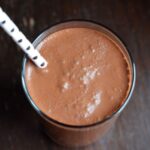Loaded Mashed Potato Pancakes
Loaded Mashed Potato Pancakes Introduction:
Loaded Mashed Potato Pancakes are a delightful twist on the classic mashed potatoes. These crispy patties are made with creamy mashed potatoes, flavorful cheese, spices, and fresh green onions. They are pan-fried until golden and crispy, resulting in a mouthwatering appetizer, snack, or side dish. Whether you’re using leftover mashed potatoes or making a fresh batch, these loaded potato pancakes are sure to become a family favorite.
Potato Cakes Ingredients:
- Vegetable oil, for frying
- 5 cups mashed potatoes
- 1/2 cup shredded cheddar cheese
- 1/2 cup Pepper Jack cheese
- 2 large eggs, beaten
- 1 tablespoon finely chopped green onions
- 1/2 teaspoon hot sauce
- 3 cloves garlic, minced
- 1 teaspoon onion powder
- 1 teaspoon smoked paprika
- 1/2 teaspoon ground black pepper
- 1/2 teaspoon kosher salt, or to taste
- 1 tablespoon all-purpose flour (optional)
- Sour cream, for serving
- Green onions and lemon wedges, for garnish
Potato Cakes Instructions:
-
Heat vegetable oil in a large skillet over medium heat, filling the pan about one-third of the way up.
-
In a large bowl, combine mashed potatoes, shredded cheddar cheese, Pepper Jack cheese, beaten eggs, chopped green onions, hot sauce, minced garlic, onion powder, smoked paprika, ground black pepper, and kosher salt. Mix until well combined.
-
If the mixture is too loose or runny, add all-purpose flour, one tablespoon at a time, until the mixture can be easily formed into dough balls.
-
Working in batches, scoop heaping tablespoons of the potato mixture. Press them slightly into your hands and drop them into the hot oil. Flatten them gently with a spatula. Fry until golden brown on both sides, about 2 minutes per side. Adjust the heat if necessary to ensure even cooking.
Recipe Variations:
- Low-carb version: Substitute mashed cauliflower for mashed potatoes to make a keto-friendly version.
- Sweet potato twist: Use mashed sweet potatoes instead of regular potatoes for a sweet and savory combination.
- Flavorful additions: Add dried oregano, fresh thyme, or basil to the potato mixture for an extra burst of flavor.
- Spicy kick: Increase the amount of hot sauce or add chili flakes and cayenne pepper to make the pancakes spicier.
- Cheese variations: Experiment with different types of cheese, such as shredded Parmesan, smoked or sharp cheddar, or mozzarella.
- Extra crispiness: Roll the formed patties in plain or seasoned breadcrumbs before frying to achieve a crispier texture.
Tips:
- Opt for starchy potatoes like Russet, Idaho, or Yukon Gold for the best texture and flavor.
- When making mashed potatoes from scratch, avoid overworking them to prevent a gluey consistency.
- If pressed for time, pre-made or instant mashed potatoes can be used.
- Gradually add beaten eggs to the potato mixture to achieve the right consistency, especially if the mashed potatoes are on the creamier side. Adding flour or cornstarch can also help bind the mixture.
- Fry the potato pancakes in hot oil to ensure a crispy exterior.
- Serve the loaded mashed potato pancakes with a dollop of sour cream, a sprinkle of green onions, and lemon wedges for a fresh, tangy touch.
Enjoy these Loaded Mashed Potato Pancakes as a delightful snack, appetizer, or side dish. The combination of creamy mashed potatoes, melted cheese, and flavorful spices creates a satisfying and irresistible treat. Whether you’re hosting a party or simply craving a comforting dish, these crispy potato pancakes are sure to please everyone at the table.
Nutrition Information (per serving):
- Calories: 213 kcal
- Carbohydrates: 32 g
- Protein: 8 g
- Fat: 6 g
- Saturated Fat: 3 g
- Trans Fat: 1 g
- Cholesterol: 55 mg
- Sodium: 289 mg
- Potassium: 455 mg
- Fiber: 3 g
- Sugar: 1 g
- Vitamin A: 323 IU
- Vitamin C: 31 mg
- Calcium: 124 mg
- Iron: 1 mg
Please note that these values are approximate and may vary depending on the specific ingredients and quantities used.
Nutrition information:
- Calories: The calorie content indicates the energy provided by the food per serving. This can vary depending on the portion size and ingredients used in the recipe.
- Carbohydrates: Carbohydrates are the primary source of energy for the body. They include sugars, starches, and dietary fiber.
- Protein: Protein is essential for building and repairing tissues in the body. It is made up of amino acids and is important for muscle development and overall health.
- Fat: Fat is a concentrated source of energy and provides insulation and protection for organs. It is also involved in hormone production and nutrient absorption.
- Saturated Fat: Saturated fat is a type of fat found in animal products and some plant-based foods. Consuming too much-saturated fat may increase the risk of heart disease.
- Trans Fat: Trans fat is an unhealthy type of fat that is formed through a process called hydrogenation. It is often found in processed and fried foods and should be avoided as much as possible.
- Cholesterol: Cholesterol is a waxy substance found in animal products. High levels of cholesterol in the blood can increase the risk of heart disease.
- Sodium: Sodium is an essential mineral that helps maintain fluid balance in the body. However, excessive sodium intake can contribute to high blood pressure and other health issues.
- Potassium: Potassium is a mineral that plays a vital role in maintaining proper muscle and nerve function. It also helps balance fluid levels in the body.
- Fiber: Fiber is a type of carbohydrate that cannot be digested by the body. It helps promote healthy digestion and can aid in weight management.
- Sugar: Sugar is a type of simple carbohydrate that provides a quick source of energy. However, excessive sugar intake can contribute to weight gain and other health issues.
- Vitamins: Vitamins are essential nutrients that the body needs in small amounts to function properly. They play various roles in maintaining overall health.
- Minerals: Minerals are essential for the body’s proper functioning, and they help support various bodily processes and functions.


.jpg)


